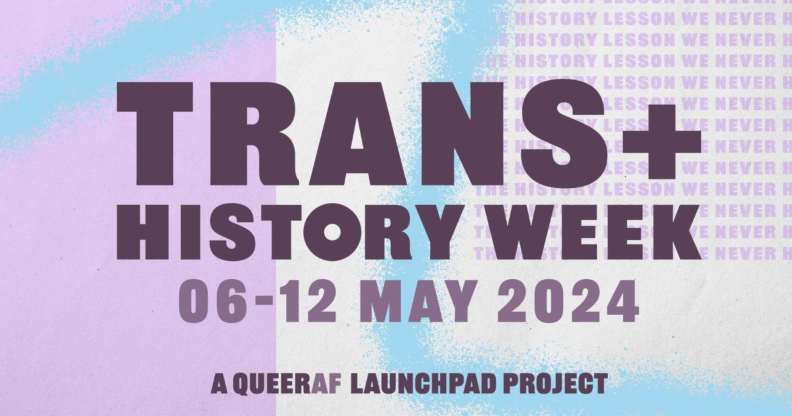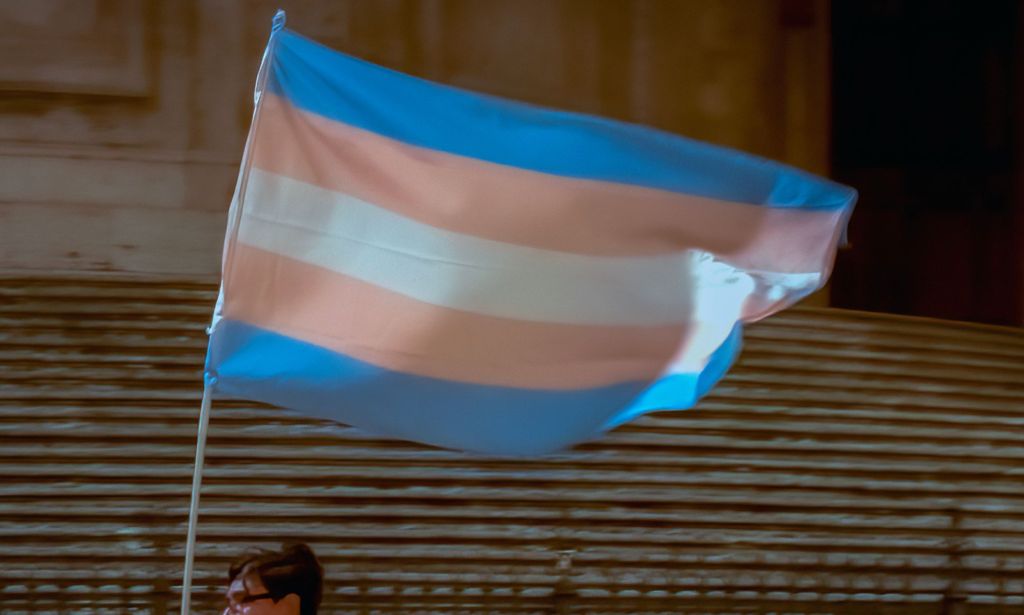Trans+ History Week launched to celebrate gender-diverse people through the centuries

Trans+ History Week will launch in May 2024. (QueerAF)
Trans+ History Week will launch in May 2024. (QueerAF)
QueerAF, an independent platform and publisher that promotes LGBTQ+ creatives is launching a Trans+ History Week, starting in May 2024.
Trans+ History Week, running from Monday 6 May to Sunday 12 May, will be a dedicated period to learn and celebrate the history of transgender, non-binary, gender-diverse, and intersex people with events, exhibitions, and content.
As the organisation points out, queerness and gender diversity can be traced back centuries – even as far as the Roman Empire.

While the trans+ community is starting to earn more recognition in historical spaces, archives, and museums, knowledge of its rich past and impact is still widely unknown.
That’s all set to change with the introduction of Trans+ History Week, as QueerAF teams up with creative Marty Davies to reeducate people on the important history that we missed out on due to queerphobic laws such as Section 28.
To highlight how much LGBTQ+ history has been lost, Trans+ History Week will launch on 6 May 2024, which coincides with the 91st anniversary of the Nazi raid of the world’s first-ever trans clinic.
On 6 May 1933, Nazi supporters raided the Institute of Sexology, an academic foundation that advocated for LGBTQ+ rights and treated thousands of trans patients for free.
Days later, the entire contents of the institute’s library were removed and dumped in Berlin’s Bebelplatz Square where they were publicly burned along with 20,000 other books.

While the infamous book burnings are a key part of people’s education about the Holocaust, the stories of transgender and queer people were widely erased.
Speaking on this, Trans+ History Week founder Marty Davies said: “The entirety of my schooling took place under Section 28. Earlier this year, I found out I’d been robbed of important history about myself and my community.
“Learning that one of the most famous Nazi book burnings was at a trans clinic was a huge surprise to me. But it made me wonder why – it’s an image we all saw in school, why didn’t we get the full context?
“Like myself, most people didn’t get the chance to learn about the complex history of the world’s first trans clinic. Learning about it set me on a path of wanting to learn more and go deeper. If we rob people of their history, we deny them their humanity.
“I want to create space for us to stand joyfully in our present with our hands wrapped around our past. Using this knowledge to steel us as we carve out a better future.”
Similarly, QueerAF founder Jamie Wareham noted that their article on the Nazi book burning taking place at a sex and gender clinic is frequently used as a tool to shut down “transgender trend” rhetoric online.

“It was immediately evident we needed more stories that could do the same,” he said.
“It sometimes feels a bit trite to say, but stories really do move people. They do change the world. – it’s a great shame there aren’t more Trans+ history stories more readily available.
“It’s time to fix that by building on, and celebrating the work that the incredible Trans+ archivers, historians, and content creators are already doing in this space.”
Trans+ History Week, which will launch just before Pride month, will give people a chance to reflect and learn about queer history and apply its learnings to our present and future.
“The future doesn’t always guarantee progress, even as time moves forward,” QueerAF said in a statement.
“That’s why the time to do this has never been more urgent. Anti-trans sentiment is on the rise across the UK. In our media, in our politics, in our communities.”
So, as Trans Awareness Week comes to a close this weekend, and as we prepare to mark the 20th anniversary of the repeal of Section 28, we can go forward knowing that there are queer stories to be told, and they can help to shut down pernicious lies about the trans+ community.
Trans+ History Week is supported by some of the UK’s biggest LGBTQ+ and Trans+ organisations, including Stonewall, PinkNews, Not A Phase, Gendered Intelligence, LGBT Foundation, Queer Britain, and Trans Actual – to name a few.

